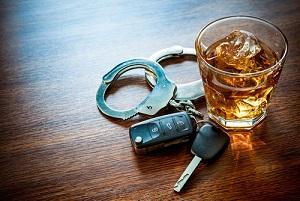Recent Blog Posts
Installing and Using a BAIID in Illinois
 If you know someone that was ever arrested on charges of drunk driving, he or she may have explained to you a little bit about the difficulties such an arrest can impose on one’s life. Of course, there are criminal penalties associated with a conviction on DUI charges, but those are far from the only challenges. In many cases, a driver charged with DUI is required to install a breath-alcohol ignition interlock device (BAIID) on his or her vehicle as a condition of the reinstatement of his or her driving privileges.
If you know someone that was ever arrested on charges of drunk driving, he or she may have explained to you a little bit about the difficulties such an arrest can impose on one’s life. Of course, there are criminal penalties associated with a conviction on DUI charges, but those are far from the only challenges. In many cases, a driver charged with DUI is required to install a breath-alcohol ignition interlock device (BAIID) on his or her vehicle as a condition of the reinstatement of his or her driving privileges.
What Is a BAIID?
Simply put, a BAIID is breathalyzer machine that is installed in a car or truck that prevents the vehicle from starting if the driver’s breath contains too much alcohol. The device is able to convert the concentration of alcohol in a breath sample to an equivalent blood-alcohol content (BAC), which provides a measure of intoxication. If the driver’s BAC level is 0.025 percent or higher, the vehicle will not start. BAIIDs in Illinois are also equipped with a camera that snaps a photo of the person providing the sample to ensure that the sample collected belongs to the person operating the vehicle.
Driver’s License Reinstatement After Suspension
 If you have been charged with drunk driving, reckless driving, or any other moving violation that resulted in the suspension or revocation of your driver’s license, your day-to-day life is likely to be severely affected. Not only will a person whose driver’s license is suspended need to make alternative travel plans—for him- or herself and for any children he or she may have —but also will need to begin the long process of driver’s license reinstatement. There are several things you should know about this process before you begin that can make it easier and progress more smoothly. The first is that it getting your license back is much easier with the assistance of a qualified legal professional.
If you have been charged with drunk driving, reckless driving, or any other moving violation that resulted in the suspension or revocation of your driver’s license, your day-to-day life is likely to be severely affected. Not only will a person whose driver’s license is suspended need to make alternative travel plans—for him- or herself and for any children he or she may have —but also will need to begin the long process of driver’s license reinstatement. There are several things you should know about this process before you begin that can make it easier and progress more smoothly. The first is that it getting your license back is much easier with the assistance of a qualified legal professional.
Financial Costs
Even working with an attorney, driver’s license reinstatement is a costly process that can also often mean significant time spent wading through bureaucratic red tape. No matter the offense for which the license was suspended, the driver will first be subject to a $250 reinstatement fee paid to the Secretary of State. A portion of this—$30—goes to the Department of Health and Human Services to help cover the cost of alcohol and substance abuse programs for repeat driving offenders. If you are one of these repeat offenders, the fine is doubled to have the license reinstated; that is, if you have had your license suspended before, again, for any reason, not just alcohol-related charges, you will be subject to a $500 reinstatement fee. In this case, $60 of the fee is allocated for drunk and drugged prevention programs.
DUI Evaluations and Risk Assessments
 When you have been arrested on charges of driving under the influence, there are a number of factors that will influence the severity of your sentence and your ability to drive again in the future. In most case, the penalties for a DUI conviction will include the revocation of your driving privileges for at least one year for first-time offenders, with much longer revocations possible for repeat offenders. Once your driver’s license has been revoked, it is possible to get your license reinstated, but getting back on the road can be long, tough journey with many requirements with which you must comply.
When you have been arrested on charges of driving under the influence, there are a number of factors that will influence the severity of your sentence and your ability to drive again in the future. In most case, the penalties for a DUI conviction will include the revocation of your driving privileges for at least one year for first-time offenders, with much longer revocations possible for repeat offenders. Once your driver’s license has been revoked, it is possible to get your license reinstated, but getting back on the road can be long, tough journey with many requirements with which you must comply.
Evaluations
Before you will qualify for license reinstatement—or even for a restricted driving permit—you will be required to undergo an alcohol and drug evaluation with an approved, licensed provider. The purpose of the evaluation is to analyze your use or dependence on alcohol or drugs and to establish the risk—if any—you present to public safety. Your evaluation will include:
Three Mistakes You Should Never Make When Faced with an Arrest
 Whether you are confronted with suspicion of driving under the influence, accused of committing battery, or have been seen on surveillance video shoplifting, there are certain actions you should avoid when placed under arrest. How you decide to carry yourself from the moment an officer confronts you can work for or against you later on in a court of law.
Whether you are confronted with suspicion of driving under the influence, accused of committing battery, or have been seen on surveillance video shoplifting, there are certain actions you should avoid when placed under arrest. How you decide to carry yourself from the moment an officer confronts you can work for or against you later on in a court of law.
Actions That Can Add Fuel to the Fire
While it is true that every Illinois state resident may exercise their basic constitutional rights upon arrest, conducting yourself civilly and politely when dealing with law enforcement is a crucial part in protecting your case as you move forward.
Conversely, here are three mistakes that have the power to potentially damage your case:
1. Resisting: If you are being arrested by an officer of the law, do not resist. You can be charged with resisting a lawful arrest, s. This is considered a Class A misdemeanor and can result in a prison sentence of up to one year, as well as a hefty fine. Even if the arrest is illegal and you are in fact innocent, failing to cooperate in any way does not help your case. If the arrest turns out to be a false one, you have the option to bring an action against the law enforcement officer later on, but during the actual arrest, it is important to cooperate.
Four-Time DUI Offenders May Be Eligible to Drive Again
 Being convicted of driving under the influence (DUI) is always very serious, even if it is your first offense. In addition to expensive fines and possible imprisonment, you will almost certainly be subject to the suspension or revocation of your driver’s license. With multiple convictions, the penalties get much more severe on all fronts. Fines increase, potential prison sentences are longer, and revoked driver’s licenses become harder to reinstate. In fact, according to Illinois law, up until this year, drivers who were convicted of DUI on four separate occasions were automatically subject to a permanent license revocation, meaning they could never legally drive again.
Being convicted of driving under the influence (DUI) is always very serious, even if it is your first offense. In addition to expensive fines and possible imprisonment, you will almost certainly be subject to the suspension or revocation of your driver’s license. With multiple convictions, the penalties get much more severe on all fronts. Fines increase, potential prison sentences are longer, and revoked driver’s licenses become harder to reinstate. In fact, according to Illinois law, up until this year, drivers who were convicted of DUI on four separate occasions were automatically subject to a permanent license revocation, meaning they could never legally drive again.
The Old Way of Thinking
The ban on driving for those convicted of DUI four times was based on two premises. First, a person with four DUI convictions had all but proven by his or her actions that he or she could not be trusted to only drive when sober. This, in effect, meant that the person was a threat to public safety. The second idea was that of punishment. Not being able to drive created a serious inconvenience to the individual forcing them to find other modes of transportation.
No More Hard Time DUI License Suspension in Illinois
 Prior to 2016, if you failed or refused a roadside test for blood-alcohol content (BAC) in Illinois, your driving privileges would be automatically suspended for a period of time. The exact length of the suspension was based on your past history and whether you failed the test or refused to take—refusals resulted in longer suspensions. Such suspensions were—and still are—handed down by the Secretary of State’s office and are separate from the process of filing and prosecuting a driver for driving under the influence (DUI).
Prior to 2016, if you failed or refused a roadside test for blood-alcohol content (BAC) in Illinois, your driving privileges would be automatically suspended for a period of time. The exact length of the suspension was based on your past history and whether you failed the test or refused to take—refusals resulted in longer suspensions. Such suspensions were—and still are—handed down by the Secretary of State’s office and are separate from the process of filing and prosecuting a driver for driving under the influence (DUI).
In recent years, modern technology has led to the introduction of driving relief programs that incorporate the use ignition interlock devices to ensure that a driver is sober when getting behind the wheel. These programs also allowed more drivers to get back on the road legally, despite their ongoing suspension of full driving privileges. The law, however, required a suspended driver to serve at least 30 days of "hard time" for a first offense with no ability to drive whatsoever. Repeat offenders were subject to even longer periods of full suspension.
Criminal Charges for Driving With a Suspended License
 Every day, countless Illinois residents face the loss of their driving privileges due to driving with a suspended or revoked license. This is a serious consequence and inconvenience for nearly everyone. If you drive and own a vehicle, you likely depend on that vehicle to be a reliable mode of transportation to get you to and from work so that you are able to provide for yourself and your family.
Every day, countless Illinois residents face the loss of their driving privileges due to driving with a suspended or revoked license. This is a serious consequence and inconvenience for nearly everyone. If you drive and own a vehicle, you likely depend on that vehicle to be a reliable mode of transportation to get you to and from work so that you are able to provide for yourself and your family.
Unless you are fortunate enough to work within walking distance to your place of employment or have access to an efficient public transportation system, your driving privileges allow you to maintain your livelihood. Even minor oversights or infractions can actually lead to the loss of your license, putting that livelihood at risk. To make matters worse, if you make the decision to drive once your license has been taken away and you are caught, criminal charges can ensue.
How Effective Are Credit Card Theft Monitoring Programs?
 Thanks to a steady increase in credit card fraud and identity theft in recent years, an intense need for additional protection has spawned for consumers of all kinds. Such security is particularly important for those who make purchases via the internet and through various mobile apps. Nowadays, it seems everyone shops on-line for purchases both small and large.
Thanks to a steady increase in credit card fraud and identity theft in recent years, an intense need for additional protection has spawned for consumers of all kinds. Such security is particularly important for those who make purchases via the internet and through various mobile apps. Nowadays, it seems everyone shops on-line for purchases both small and large.
No one is immune to identity theft, especially when we live in a world where technology rules and our bank account information is more accessible than ever before. In some cases, individuals sometimes even find themselves accused of credit card theft crimes due to the fact that their name was tied to certain information, when in reality, they actually had nothing to do with the crime whatsoever.
How Do Monitoring Programs Protect You?
To combat the ongoing problem, most credit card companies offer complimentary credit card monitoring services when you open an account with them. Some companies charge a small fee, but all of the programs exist to alert you to any suspicious or fraudulent activity that may adversely affect your financial standing. While credit card theft monitoring programs cannot actually prevent theft altogether, they can offer a level of protection by bringing any suspicious activity to your attention right away so the theft can be addressed as quickly as possible.
Domestic Battery Charges in Illinois
 Domestic battery is considered a serious offense in the state of Illinois, and those who are convicted can face heavy penalties. Even first-time offenders with no previous criminal record can experience permanent effects that impact their daily lives. If you are facing domestic battery charges, understand these potential consequences, and how you can most effectively protect your future.
Domestic battery is considered a serious offense in the state of Illinois, and those who are convicted can face heavy penalties. Even first-time offenders with no previous criminal record can experience permanent effects that impact their daily lives. If you are facing domestic battery charges, understand these potential consequences, and how you can most effectively protect your future.
What Is Domestic Battery?
Illinois state law defines domestic battery as intentionally or knowingly causing bodily harm to another family member, or intentionally provoking or threatening a family member in a way that makes them believe you may cause them bodily harm. This can extend beyond those that live with you and may include:
- Spouses or former spouses;
- Parents;
- Children or stepchildren;
- Current or former roommates;
Posting Bail in Illinois: What You Need to Know
 When someone is arrested on criminal charges, it can take months (or longer) before their case goes to trial. This does not necessarily mean that the individual has to wait in jail. Some situations may permit for a bail – a monetary payment – to be posted, giving the accused a chance to wait for their trial outside of police custody. If you or someone you love has been arrested and is facing charges, learn how bail bonds work in Illinois, and what it means for the accused, and the payer of the bond.
When someone is arrested on criminal charges, it can take months (or longer) before their case goes to trial. This does not necessarily mean that the individual has to wait in jail. Some situations may permit for a bail – a monetary payment – to be posted, giving the accused a chance to wait for their trial outside of police custody. If you or someone you love has been arrested and is facing charges, learn how bail bonds work in Illinois, and what it means for the accused, and the payer of the bond.
How Bail Works
At its core, bail is a pledge to return to court for all scheduled hearings. It might be a pledge of personal property, or even a personal promise from the accused. However, bail is generally a monetary sum of money. As long as the accused follows through, the bail is returned upon the defendant’s exoneration. Alternatively, if the accused is convicted, the funds are put toward their court fines. When a defendant fails to attend their scheduled hearings, the bail is forfeited and a warrant is issued for their arrest.







